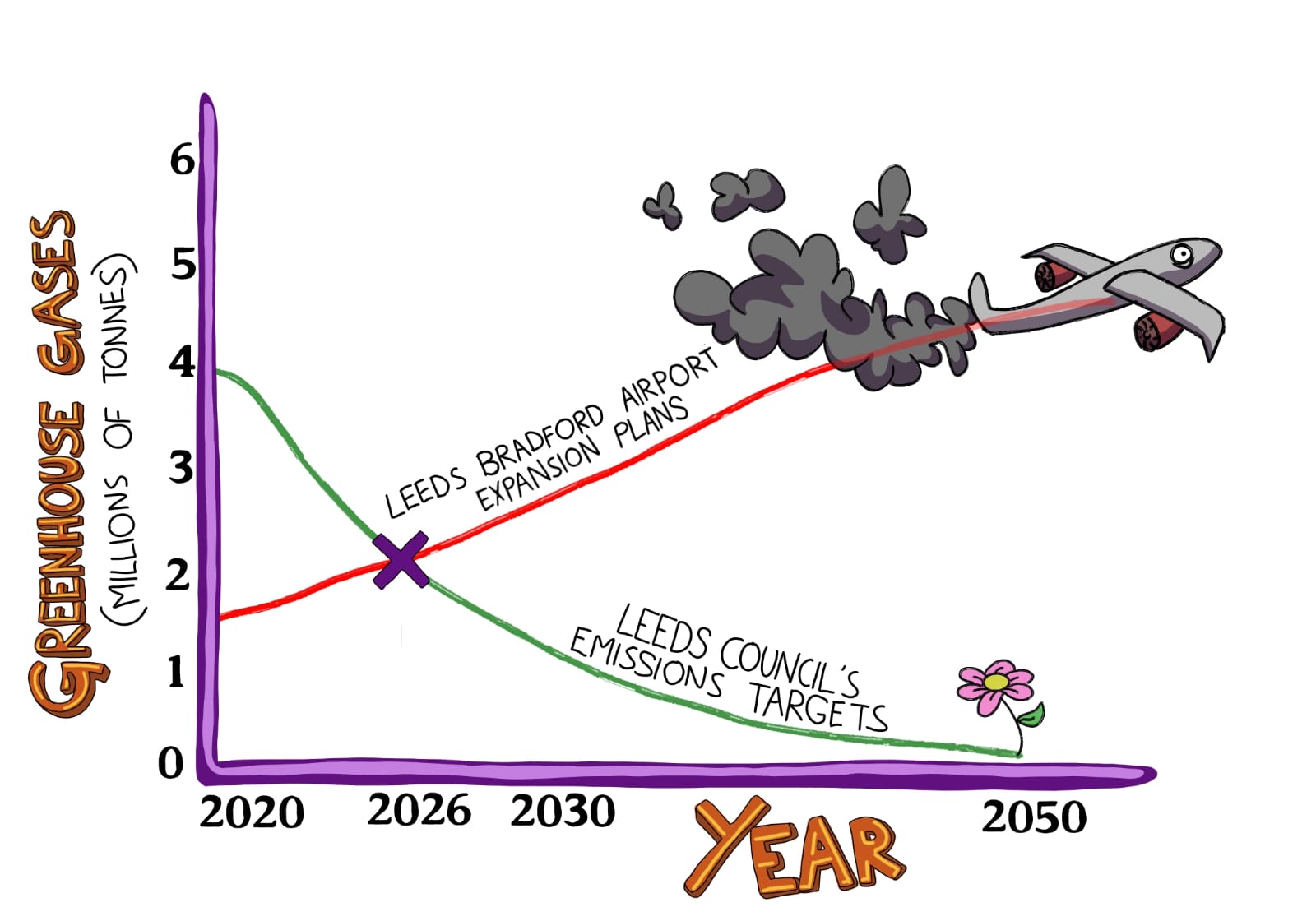
Up and down the UK, airports have been honing their expansion plans.
Leeds Bradford Airport has submitted a planning application that would lead to it expanding from 4 million to 7 million passengers a year. That’s just one of at least 21 UK airports that have expansion plans in the pipeline.
Local airports don’t just meet existing demand, they drive new demand. They make flying more competitive, cheaper and more convenient. That’s fine if you think more flying is a good thing. But the UK has already set legally binding targets to reduce CO2 emissions to net zero, and passenger aviation makes up about 8% of the UK’s emissions.
"The UK has already set legally binding targets to reduce CO2 emissions to net zero, and passenger aviation makes up about 8% of the UK’s emissions."
There’s some confusion over the role of airports in greenhouse gas emissions, because most of the emissions come not from the airport itself but from the flights that take off and land there.
Airports might include plans for a more sustainable terminal building, or talk about shortening the journey to the airport, while ignoring the emissions from the flights themselves. In the case of Leeds Bradford Airport, a group of climate scientists has estimated that, by 2030, the airport will reduce emissions from its terminal by 7,000 tonnes of CO2 equivalent, while increasing emissions from flights by 500,000 tonnes.

GALBA (Group for Action on Leeds Bradford Airport) is campaigning against Leeds Bradford expansion, and has been getting into the nitty of the legal position with regards to emissions.
It’s not simple.
Leeds City Council has been given legal advice by their planning officers that:
The argument is that domestic flight GHG emissions are covered by UK carbon budgets, and international flight GHG emissions are covered by the UN’s CORSIA offsetting scheme. So if councillors were to take GHG emissions from flights into account in their decision, they would effectively be ‘double counting’ them.
Is this really the case? GALBA’s barrister thinks not:
It’s convenient for the airport to ignore emissions from the flights themselves, and it does make sense if those emissions will genuinely be counted elsewhere. But the advice to GALBA continues with this:
“The EIA Regulations require all climate impacts to be taken into account.”
and
There are two big problems with assuming the emissions from flights will be taken care of by national and international arrangements.
First, the UK’s Climate Change Committee has already looked at aviation emissions and concluded that 25% growth in passenger numbers by 2050 is the most that can be accommodated within its net zero scenarios. But UK airports are currently planning growth of at least 59% by that date, with much of the growth happening much sooner.
"25% growth in passenger numbers by 2050 is the most that can be accommodated within net zero scenarios."
The second problem is that the agreement to cover emissions from international flights, CORSIA, looks as if it will be very weak. (For a full account of CORSIA’s shortcomings, read this excellent post by Jocelyn Timperley.)
Councillors may well feel that they are local councillors, and it’s not their job to save the world from climate change. Or they might see their challenge as balancing the benefits of jobs and holidays against the much vaguer and more far-off threat of climate change.
But climate change is not distant and formless any more. Extreme weather and sea level rise are already affecting businesses and communities in the UK and we urgently need to stop it getting worse.
When it comes to the legal arguments, both parties are as convincing as the other (maybe that's why lawyers get paid so much!).
But it's undeniable that the UK’s target of net zero by 2050 will be very difficult to achieve, even if everyone does all they can.
And if local councils are vying with each other to make sure their local airport takes the biggest possible chunk of any remaining carbon budget, achieving net zero will be impossible.
The GALBA quotes in this article come from their blog published on the Stay Grounded website.



